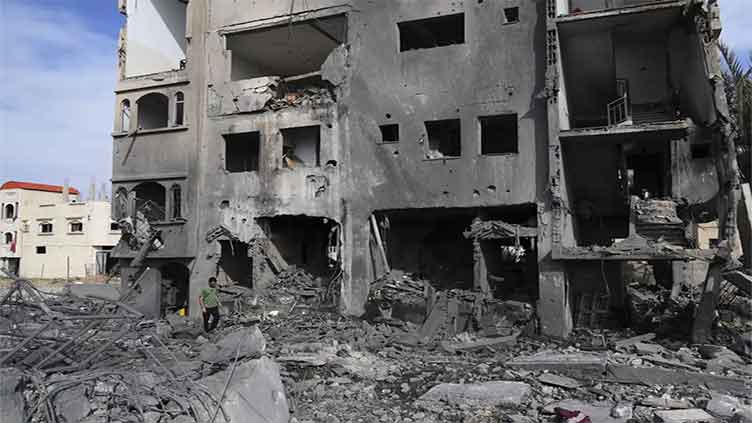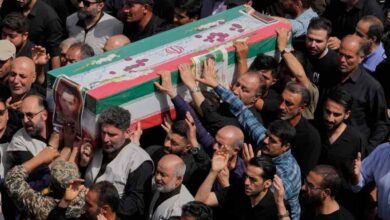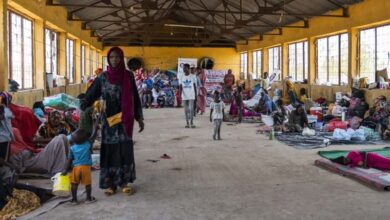DEIR AL-BALAH: Israeli strikes pounded Gaza overnight and into Tuesday, hitting a family home and a school-turned-shelter, and killing at least 60 people, Palestinian health officials said, as Israel pressed its war against Hamas despite mounting international condemnation.
Israel launched another major offensive in the territory in recent days, saying it aims to return dozens of hostages held by Hamas and destroy the militant group. More than 300 people have been killed in Gaza since the start of the latest onslaught, according to local health officials.
Israel says it seeks to seize Gaza and hold on to territory there, displace hundreds of thousands of people and secure aid distribution.
As the new offensive ramps up, Israel agreed to allow a limited amount of aid into the war-ravaged territory of roughly 2 million people after a 2 1/2 month blockade that prevented the entry of food, medicine and fuel, among other goods. The blockade prompted warnings from food experts of a risk of famine.
Israeli Prime Minister Benjamin Netanyahu said he made the decision to let in minimal aid after pressure from allies, who he said couldn’t support Israel so long as “images of hunger” were coming out of Gaza.
Criticism of Israel’s conduct intensified Monday when allies Canada, France and the United Kingdom threatened “concrete actions” against the country, including sanctions, and called on Israel to stop its “egregious” new military actions in Gaza. Netanyahu rejected the criticism, saying it was “a huge prize” for Hamas’ Oct. 7, 2023, attack that would invite more such violence.
French Foreign Minister Jean-Noël Barrot denounced the Israeli government’s “blind violence” in Gaza that he said has turned the Palestinian territory into a “place of death.”
“This must stop,” Barrot told French radio France Inter on Tuesday.
Jens Laerke, spokesman for the U.N. humanitarian agency OCHA, said the world body had received approvals for about 100 trucks to enter Gaza.
But he said only five trucks have crossed into Gaza since Monday and those do not appear to have been taken yet by aid groups for distribution. It was not immediately clear what was causing the holdup.
The U.N. says that amount of trucks is just “drop in the ocean” of what is needed. Some 600 trucks a day had entered during a ceasefire earlier this year.







